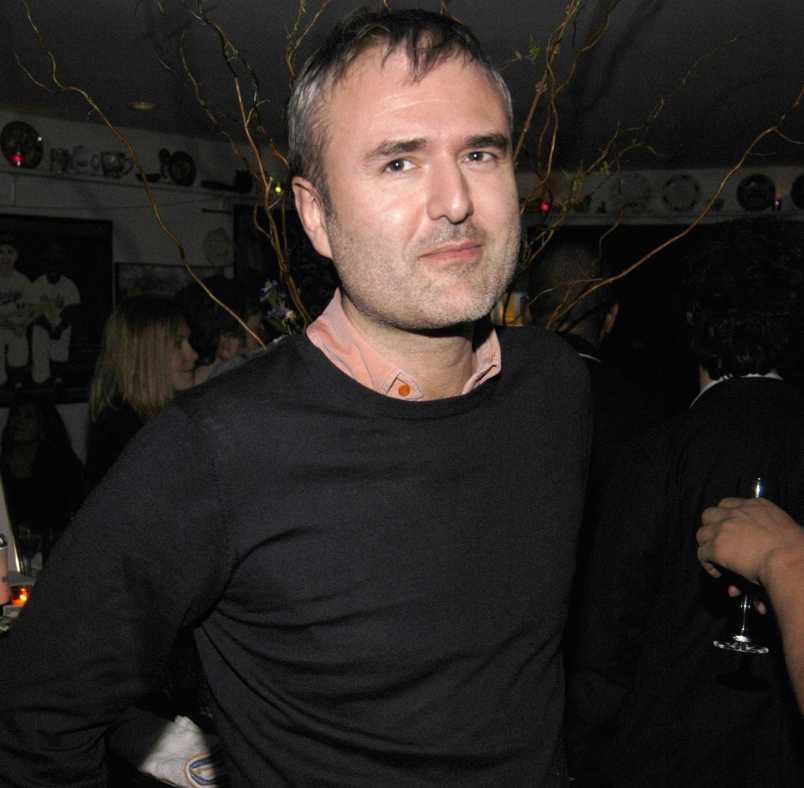The online publisher Gawker has never consciously defined itself as an activist rag, but it’s poised to adorn its snappy media brand with an unexpected label: “union-made.”
Yesterday, senior writer Hamilton Nolan announced that Gawker plans to become the highest-profile online media venture to go union. Staff members are now organizing with the Writers Guild of America. Though the details are still vague, the unionization effort marks a refreshing spark of labor consciousness in an industry that tends to dehumanize creative work.
Though the move is not entirely surprising, in light of the general labor-friendliness that Nolan and other Gawker writers have displayed in past news commentary, the unionization of staff situates Gawker within a growing segment of the “new economy” labor force—a legion of hustlers ranging from runway models to adjunct professors—that’s rediscovering and redefining the union as a cultural institution.
According to Nolan, they’re still figuring out process (“blazing a new trail,” he writes via email). But they hope to incorporate as much of the editorial staff as possible and to establish a union that embodies the principles Gawker staff have previously championed rhetorically.
Though we can’t be sure what exactly spurred this effort, or whether it’s a reaction to a specific labor dispute, Nolan’s announcement, posted yesterday afternoon, suggests the publication was perhaps pre-emptively heeding some brewing concerns among the rank-and-file: “We would like to ensure everyone receives a salary that is fair for their time at the company and the work they do,” Nolan wrote. “We would like to ensure that things like pay and raises are set in a fair, transparent, and unbiased way. We would like to have some basic mechanism for giving employees a voice in the decisions that affect all of us here.” The organizing effort seems aimed at building on labor conditions that Gawker Media Group already offers: full-time positions, full medical and retirement benefits, and perks like commuter reimbursement.
But beyond the bread-and-butter issues, Nolan’s announcement seems to hit on a key principle: The union is an essential social contract codifying standards, protections and concrete power at work. That relationship extends beyond individual workers or managers, or even the benevolence of a “good” boss—and enshrines a consensus around collective rights and responsibility.
Many journalists who work online, particularly freelancers and others precariously employed as contractors, “specialists” and “digital content producers,” see their trade in freefall: not just in its ability to sustain solid professional writers with literary and investigative chops and to compensate them fairly, but also its ability to sustain outlets that can provide those jobs on a steady basis. So as the traditional media infrastructure and business model craters, organizing efforts at younger, nimbler digital platforms shows that “new media” workers do want structure. And not only do they want it; they want to build it themselves.
The fact that an über-blog with a roughly 120-person staff in a deluxe Flatiron office is reviving the union is a pushback against the neoliberal model of journalism, which seeks to commodify cultural production. Some form of organized labor may be the media precariat’s best bulwark against the drive toward the exploitation of their creative talents and ultimately the degradation of their work. Or, as Nolan put it in his comment on the Wisconsin labor clashes of 2012: “a particularly cutthroat evolution of capitalism, in which all human interests are secondary to the cause of cost-cutting and price-dropping.”
If a union crystallizes amid the gifs and satirical barbs flying across its feed, it could lay the groundwork for a journalistic ethos that champions authenticity and respect in a media universe brimming with bull. That said, there are other smaller publications that have spearheaded unionization in non-traditional media, including In These Times (where I’m a contributing editor) and Truthout, both affiliated with the Newspaper Guild/Communication Workers of America. And there are of course incumbent unions established newspapers like The Washington Post, not to mention a brilliant history of media rank-and-file insurrection stretching back to the Popular Front.
Many questions will percolate up in the coming months: How will Gawker workers establish an equitable wage structure across multiple, and perhaps still undefined, editorial and production roles? How will collective bargaining be managed across a diverse array of media outlets? As Gawker expands commercially, how will editorial and financial independence be preserved, and what will be the parameters of editorial control built into the contract? And what about overarching philosophical questions about corporate hierarchy, gender and racial equity, or—when crisis hits—how staffers could effectively leverage the right to strike?
For all its self-conscious irreverence, Gawker’s prospective unionization means it’s getting serious about anchoring labor’s role on the “new” media landscape. If other publications follow, a journalism workforce that has long struggled to stay afloat in the digital ether might finally start trending upward.
Michelle Chen is a contributing editor at In These Times and Dissent, blogs at The Nation and co-produces the Belabored podcast. Follow her @meeshellchen.







The Newspaper Guild is now just the The NewsGuild (although local affiliates are mostly in the process of voting on changing their names).
So does TPM have a union?
Wonder what the Huffpo management would think if they try to unionize there…now THAT would be something to see!
You asked before I could
Chen forced me to go and read some of Nolan’s more recent writings and I was surprised to see that he seems to have grown up a bit.
It’s a start but he still needs to go back and review some of his puerile and mean-spirited earlier crap and do some public atoning.
Chen gets extra points for “precariat”.